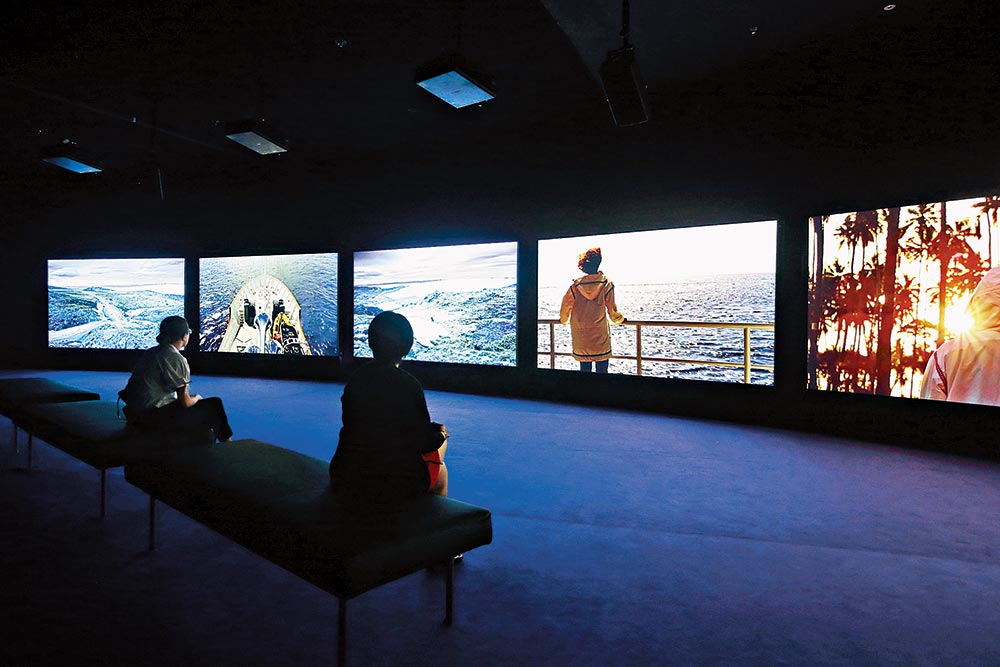India’s booming economy and rising number of business visitors have contributed to the spectacular expansion of the country’s outbound meetings, incentives, conferences and exhibitions (MICE) travel sector. Unfortunately, the same is not the case for the inbound MICE market. India attracts less than 1% of the worldwide MICE industry despite its extensive history, tourist attractions and new economic centres.
One of the significant factors hurting India’s inbound MICE sector is the need for more conference and exhibition facilities. Large-scale conventions, trade shows and meetings rely heavily on these locations. Sadly, India’s conference facilities have limited capacity and amenities, making it challenging to host international MICE events.
Attracting foreign delegates also requires an adequate transportation infrastructure, such as well-connected airports and a dependable public transit system. While many of India’s larger cities have international airports, secondary cities’ potential as MICE destinations depends in no little part on their accessibility.
Setting Things Right
Funding the construction of modern conference and exposition halls in strategic locations is essential. India’s potential to host international MICE events may be significantly improved by expanding current facilities and constructing new venues with contemporary amenities. Collaboration and infrastructure development are two areas where public-private partnerships may be crucial.
Promoting India as a destination for international events requires highlighting the country’s rich cultural history, one-of-a-kind attractions and welcoming business climate. Bringing in foreign MICE delegates may be facilitated by working with tourist boards, industry groups and internet marketing platforms to highlight India’s best features.
Other factors to take note of are liberal policies, minimal cacophony of socially active groups, safety, cleanliness, efficiency and curbing the hooliganism which haunts single or group travellers.
The expansion of India’s MICE business depends on the country’s ability to train and create a qualified workforce in this field. Training programmes, capacity development efforts and platforms for information exchange may help event organisers, planners and support workers improve their abilities.
The government’s help is crucial in expanding India’s MICE business. Infrastructure development, immigration procedure simplification and financial aid for MICE event organisers may all benefit from policy changes, incentives and regulatory frameworks. The government and businesses must work together to effect good change.
According to a new report published by Allied Market Research, titled Outbound MICE Market, the global outbound MICE market is estimated to reach $1,272.2 billion by 2031, growing at a compound annual growth rate of 13.3% from 2022. India is one of the fastest growing economies in the world and has natural and cultural advantages, yet its MICE business is low. With 158 meetings, it was ranked 28th in the 2019 International Congress and Convention Association ranking of countries, where its cities fared poorly.
Destinations of Choice
India’s MICE travellers are migrating to southeast Asian nations such as Thailand, Singapore, Vietnam, Malaysia and Indonesia. These locations provide them with a favourable visa procedure, making planning and attending MICE events more straightforward. In addition, these countries’ proximity, affordability and variety of offerings make them appealing options for Indian businesses planning corporate events, conferences or exhibitions.
With numerous flight connections, streamlined visa procedures and world-class infrastructure, the Middle East provides Indian businesses with a convenient and accessible option for hosting and attending MICE events.
Despite visa difficulties, Europe and North America continue to be attractive due to their importance as global business centres. Numerous prestigious conferences, trade exhibitions and industry-specific events are being held in countries such as the United Kingdom, Germany, France and the United States. The opportunities for networking, business collaborations and knowledge exchange in these regions remain alluring for Indian businesses and professionals despite the complexity of visa requirements.
Brand Building
While the media informs the public, unfavourable news coverage might affect India’s image. To mitigate negative consequences, the media must report on the Indian MICE industry’s rich cultural legacy, competent event management services and world-class locations. Government, tourism and media collaboration may reduce the negative effect of such stories and improve India’s image for incoming MICE guests.
Events like the International Yoga Day boost India’s worldwide exposure and branding. World leaders, diplomats and dignitaries attending such events portray India as culturally rich and welcoming. This worldwide prominence helps India attract inbound MICE business by demonstrating its capacity to conduct substantial international events and attract a broad audience. Global events like the Yoga Day provide unique cultural exchange and networking opportunities. Inbound MICE delegates may use these networking chances to meet Indian firms and organisations and explore cooperation. Cultural interaction and networking enhance MICE business in India and foster long-term ties.
As a pioneer in wellness and holistic methods, India attracts healthcare, health and lifestyle professionals to wellness-themed MICE events. Inbound delegates may enjoy India’s cultural history and expertise, a unique selling feature. We also need more world-class venues like the Jio World Convention Centre in Mumbai and the upcoming India International Convention and Expo Centre in New Delhi. However, hosting a vast international event needs infrastructure, security and logistical preparation. These demands may temporarily divert attention and resources from other MICE-related activities, affecting venue, lodging, service availability and price for other incoming MICE events. India can boost its position as a desirable location for inbound MICE events by handling these obstacles.
Diwan Gautam Anand is a trustee of the Cuisine India Foundation and former executive vice president of ITC Hotels











